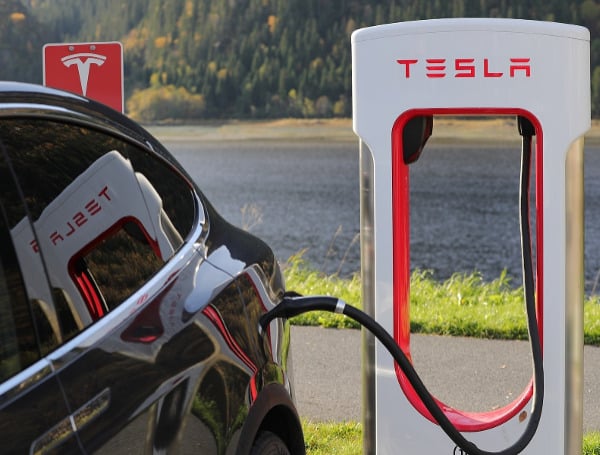A seismic shift could be on the horizon for the electric vehicle industry in the United States. House Republicans on the Ways and Means Committee unveiled draft legislation on Monday that proposes to dismantle key financial incentives for the sector, potentially putting Tesla’s long-held assertion of subsidy independence to the ultimate test.
The proposed House Reconciliation bill takes direct aim at the cornerstone of federal EV support: the $7,500 tax credit for new electric vehicle purchases. If enacted, the elimination of this credit would significantly increase the upfront cost of EVs for consumers, potentially making them far less competitive against their gasoline-powered counterparts.
READ: GOP Rift Emerges Over Potential Tax Hike On Main Street Businesses
This move could fundamentally alter the trajectory of EV adoption in the nation and cast a shadow over the viability of numerous American EV manufacturers.
While the potential demise of the EV tax credit has sent ripples through the industry, the Republican proposal extends beyond just electric cars.
The draft bill also targets the 45V hydrogen tax credit, along with other clean energy tax breaks included in the Inflation Reduction Act (IRA) of 2022.
These include the Clean Electricity Investment and Production Tax credits, which support renewable energy infrastructure, and the Advanced Manufacturing Production Tax Credit, designed to bolster domestic clean energy manufacturing.
READ: U.S. Sanctions Individuals And Entities Supporting Iran’s Ballistic Missile Program
It is notable that the 45V hydrogen credit has been included in the crosshairs. Unlike the EV credit, it has garnered support from renewable energy companies and some traditional oil and gas players.
For instance, ExxonMobil has reportedly planned to leverage this credit for its “blue” hydrogen production at its Texas refinery. However, critics argue that some hydrogen startups are primarily motivated by accessing government subsidies rather than building truly sustainable businesses.
The potential repeal of the EV tax credit could have profound implications for the industry’s growth. Critics of the subsidies argue that they have fueled unsustainable business models and inflated the market.
However, the spotlight is now on Tesla and its outspoken CEO, Elon Musk. Musk has repeatedly stated that his company can thrive without government subsidies, a claim that sets it apart from most other pure-play EV manufacturers in the American market.
READ: Louisiana Senator John Kennedy Hails Trump’s China Trade Deal As “Big Victory”
The potential elimination of the $7,500 tax credit could provide Musk with the very opportunity he has seemingly sought: to prove Tesla’s inherent competitiveness in a subsidy-free environment.
The coming weeks and months will be crucial as this legislation moves through Congress. The debate over the role of government incentives in the transition to electric vehicles and clean energy is likely to intensify, with the future landscape of the American automotive industry hanging in the balance.
Please make a small donation to the Tampa Free Press to help sustain independent journalism. Your contribution enables us to continue delivering high-quality, local, and national news coverage.
Connect with us: Follow the Tampa Free Press on Facebook and Twitter for breaking news and updates.
Sign up: Subscribe to our free newsletter for a curated selection of top stories delivered straight to your inbox.
